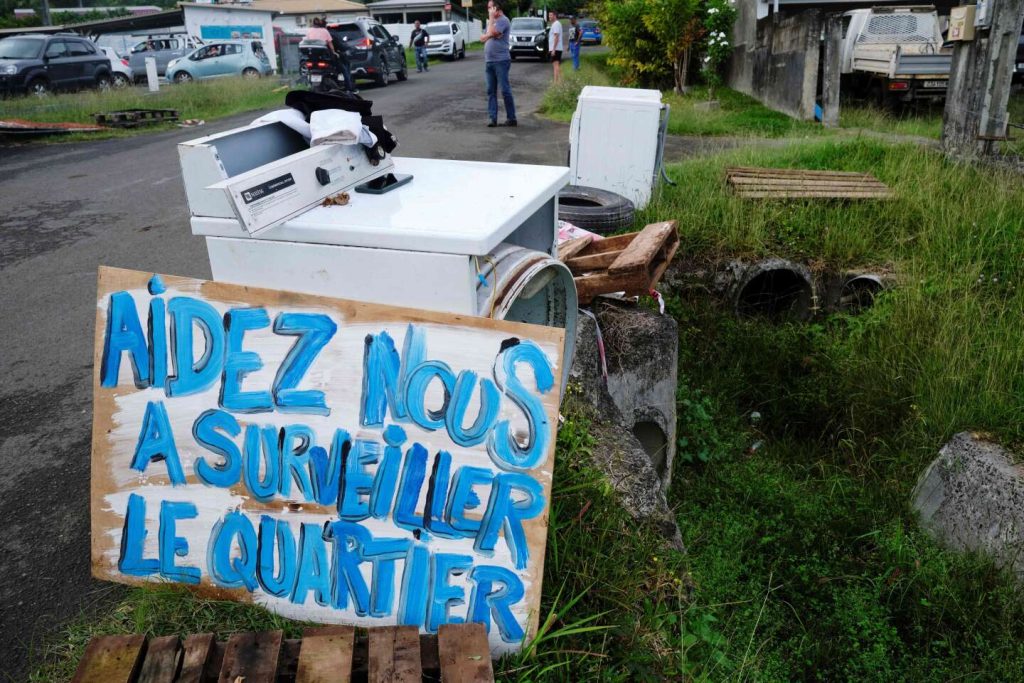Residents are monitoring the neighborhood to try to prevent vandalism in Mont-Doré, New Caledonia, on June 10, 2024. Local politicians have expressed concern about the timing of the upcoming legislative elections on June 10, with many feeling that the focus on politics is exacerbating tensions in the region. The dissolution of Parliament and the imposition of a curfew due to ongoing violence have made it difficult for elected officials to campaign and address pressing issues facing the territory, such as the struggling economy and high unemployment rates. The local government has reached out to allied countries in the Pacific region, such as Australia and Japan, for financial support.
The announcement of the legislative elections on June 30 and July 7 has raised concerns among politicians in New Caledonia, with some feeling that President Macron’s focus on national issues has neglected the unique challenges facing the territory. The dissolution of Parliament has come at a time when the region is already experiencing a fifth week of insurrection and unrest, with widespread violence and a curfew in place. Elected officials, both independence advocates and loyalists, are facing physical threats and are unable to hold public meetings due to safety concerns. The ongoing crisis has resulted in a significant economic downturn, with many businesses struggling and a quarter of the workforce facing unemployment.
The ongoing insecurity and instability in New Caledonia have led to a sense of urgency among residents and politicians alike. The persistence of violence, the curfew in place until June 17, and the economic impacts of the crisis have made it difficult for the territory to address its pressing social and economic issues. The lack of security and public safety, as well as the disruptions to daily life, have left many feeling disillusioned with the current state of affairs. The local government is seeking support from international allies to address the economic challenges facing the territory, particularly in the mining industry which has been severely impacted by the crisis.
The political landscape in New Caledonia is complex, with deep divisions between pro-independence groups and loyalists to France. The dissolution of Parliament and the upcoming legislative elections have added a new layer of complexity to the situation, with many feeling that national politics are overshadowing the unique needs of the region. The ongoing violence and unrest have highlighted the challenges facing the territory, from economic struggles to social instability. The local government is working to address these issues and seeking support from international partners to stabilize the situation and ensure the safety and well-being of residents.
Overall, the situation in New Caledonia remains tense and uncertain as the territory grapples with ongoing violence, economic challenges, and political instability. The upcoming legislative elections have added a new element of uncertainty to the situation, with many feeling that the focus on politics is exacerbating tensions in the region. Elected officials are facing threats and challenges in addressing the pressing issues facing the territory, from unemployment to public safety. The local government is seeking support from international allies to address the economic challenges and ensure the stability and well-being of residents in the midst of the crisis.


